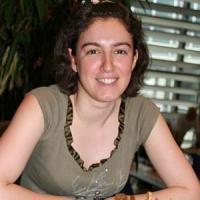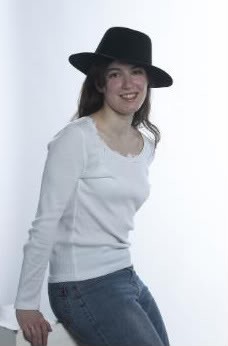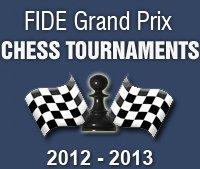
An interview with Yelena Dembo

Yelena Dembo is a Russian born Women's Grandmaster and International Master currently rated at 2429 Elo, which places her at 43rd in the women's chess world rankings. She is also one of the top rated players at Chess.com!
I caught up with Yelena after her rousing performance at the recent European Individual Chess Championships in Bulgaria, where she finished just half a point behind the winner and narrowly lost out in the tie-breaks for a medal.
Q. Hi Yelena. Thanks for agreeing to answer some questions for Chess.com! I understand that you come from a chess-playing family and learnt to play chess at a very young age. Could you tell us more about your early chess experiences and your family?
A. It is possible to write a whole book about it! All of it would be very interesting and very useful. My mum is a USSR Master, linguist and journalist. My dad is her (and my) trainer, a pianist (a graduate of Leningrad's Academy), a journalist, writer and psychologist.
Even before my birth my parents created a special system for teaching children. My dad called this system: "How to make a talented child out of normal one". Later on he gave lectures about it in different Universities and Institutes of Russia. Chess was definitely a very important aspect of this system. So, I won my first chess event among boys under 12 when I was only 3 years and 9 months old!
Q. So would you describe yourself as a child prodigy? Did you have any other talents and interests that competed with chess for your attention when you were growing up?
A. Of course, I was a prodigy besides chess, when I was two-and-a-half years old I read books in Russian and soon started reading in English. I could run and walk over 10 km in one day, was playing the piano a little and could sing very well. My dad says that my musical talent wasn't worse than my chess one.
Q. Your family emigrated to Israel when you were just 7 years old. Why did they emigrate and how did life change for you?
A. We emigrated from the USSR because the country was collapsing. It is necessary to add anymore? 
Of course, my life changed a lot. In the USSR we lived very well from an economic point of view. For example, we had our own flat, a very good car, a garage, both my parents worked in great places. When we came to Israel, we became incredibly poor - we didn't have anything as it was possible to take out of USSR only $60 per person.
Q. Did your chess studies affect your schooling when you were growing up? When did you decide to become a professional chess player and was it a difficult decision?
A. Of course, chess was affecting school and school was affecting chess! Especially in a new country with a very difficult language! It is very easy to answer the 2nd question: after winning the first event when I was 3 years and 9 months old it became clear that we need to concentrate on this.
Q. You are quite a globetrotter - you now live in Greece with your husband. Could you tell us more about him and how you met?
A. I am indeed a globetrotter but for 4 years now I live in Athens with my husband and my parents. My husband is an FM with 2300+ Elo, his name is Sotiris, he is 33 years old and he works in a logistics company as a business consultant. He is also a FIDE arbiter and a chess organizer who organized many world and European junior championships as well as many other International events.
And now about the "love story"  . Four and a half years ago he invited me online to play in an upcoming "Acropolis" tournament in Athens where I played very successfully, sharing 1st-2nd places and found Sotiris!
. Four and a half years ago he invited me online to play in an upcoming "Acropolis" tournament in Athens where I played very successfully, sharing 1st-2nd places and found Sotiris! 
Q. What do you consider to be your greatest chess achievements?
A. I am 8 times a medallist of World and European Youth Championships, including winning the 1st place in girls European Championship under 20 in rapid in 2002 and 3rd place in Women's Individual European Championship in 2005 in Moldova. I became WGM in 2001 and Men's IM in 2003. I have 1 men's GM norm (since Hamburg men's Open 2005). I have also written 3 books (one of them an opening book for Everyman Chess).
Q. Is there a particular game which you consider to be your best?
A. I would pick my game against FM Castaneda in 2001.
Q. How would you define your chess style? Do you approach chess primarily as an art or a science?
A. People say about many games of mine that they were played in young Tal's style. Of course, this makes me very happy. But in general I always play by the means of the position: if it is necessary to sacrifice two-three pieces, I will do it without thinking twice, or if it is necessary to win an isolated pawn I am ready to do it for the next 40-60 moves! 
Part 2 coming soon...
